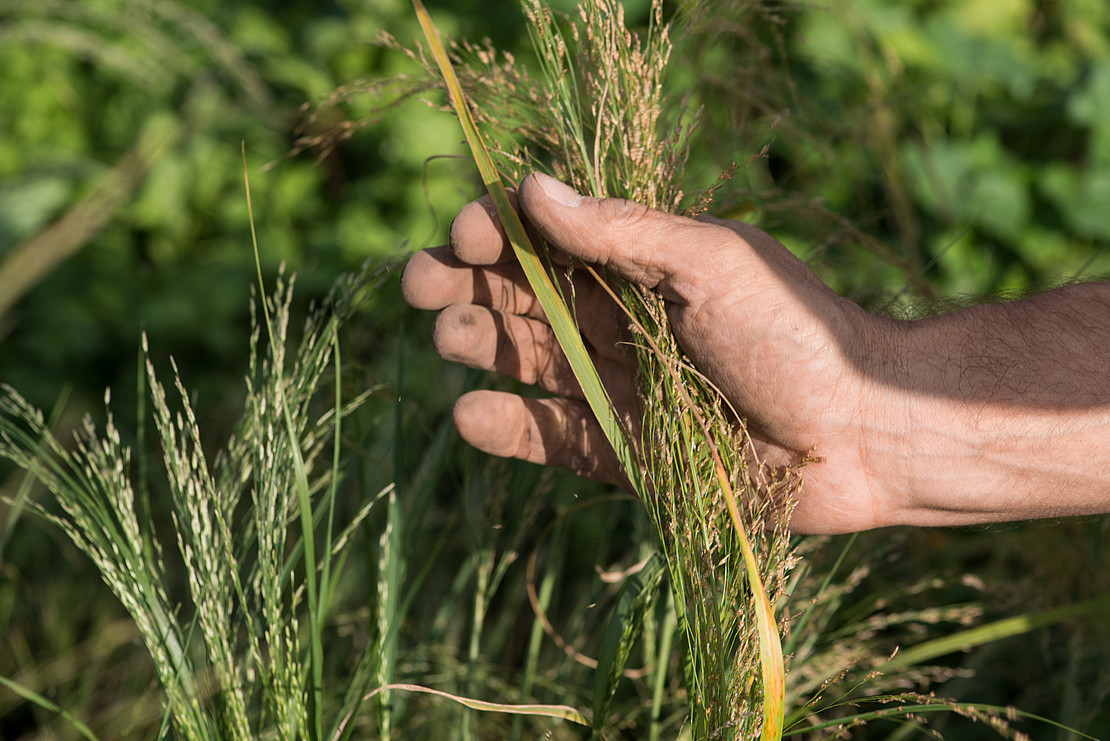This page contains automatically translated content.
Germany's bioeconomy is operating on too large a footing
 Image: Blafield.
Image: Blafield.For this purpose, the Center for Environmental Systems Research (CESR) at the University of Kassel, headed by Prof. Dr. Stefan Bringezu, in cooperation with the Gesellschaft für wirtschaftliche Strukturforschung (Society for Economic Structures Research) and the Ökoinstitut (Institute for Applied Ecology), determined the global ecological and socioeconomic footprints of the German bioeconomy from 2000 to 2015. Furthermore, a forecast of the development until 2030 was prepared. The result: Germany's bioeconomic footprint is too high and places a burden on other countries.
In agriculture, German biomass consumption in 2015 was 81% above the global average. Also, the greater part of the harvest for agricultural products consumed in Germany took place abroad. To meet German consumption, three times as much arable and pasture land is needed abroad as is already farmed in this country. The result has been the clearing of forests for new agricultural land in other countries. In the process, a significant portion of agricultural production is used for animal feed. By 2030, scientists predict a decline in the amount of agricultural land occupied by Germany worldwide. The reason for this is the slight decline in meat consumption. Nevertheless, it is expected that in 2030, without further measures to conserve resources, the use of arable land will be above the world average and at a sustainable level.
In terms of water consumption, German consumption also burdens foreign sources. This relates to the irrigation of agricultural land on which crops are grown for export. However, scientists expect a decline here by 2030. This is mainly due to falling demand for cotton products, which still accounted for 31% of water consumption in 2000. In 2015, this share was only 14%. Although the amount of water footprint is decreasing, the share of purchases from regions with water scarcity will increase. As a result, Germany is indirectly contributing to this water scarcity.
In the area of climate, the burden of domestic consumption per person is twice as high as the global average. The German bioeconomy accounts for 18-20% of the climate footprint of the entire economy. In contrast, it contributes only 10% to employment and 8% to economic output.
The entire publication can be found here: https://www.nature.com/articles/s41893-021-00725-3
More information on the German bioeconomy can be found here: https://kobra.uni-kassel.de/handle/123456789/11591
Contact:
Prof. Dr. Stefan Bringezu
University of Kassel
Center for Environmental Systems Research
+49 561 804-6115
bringezu[at]cesr[dot]de
Sebastian Mense
University of Kassel
Communications, Press and Public Relations
Tel.: +49 561 804-1961
E-mail: presse[at]uni-kassel[dot]de